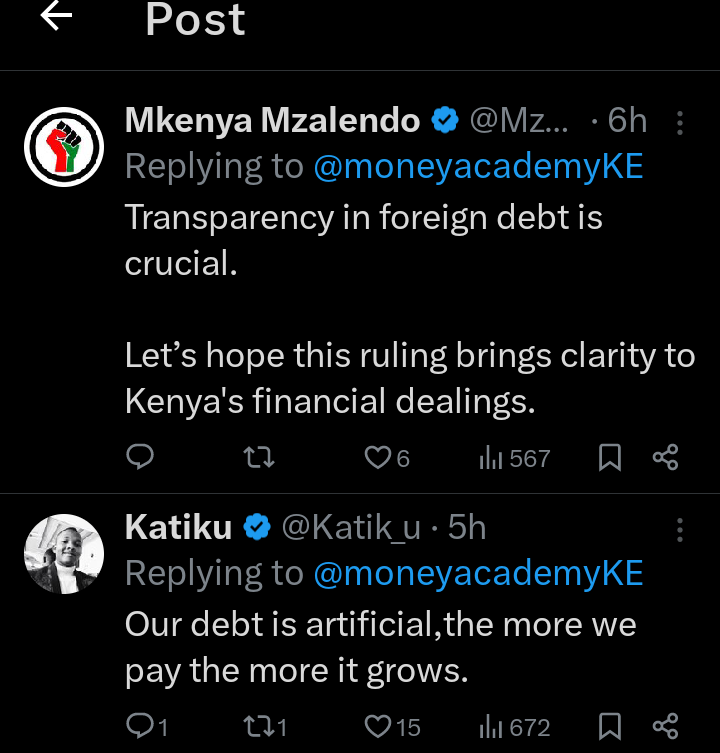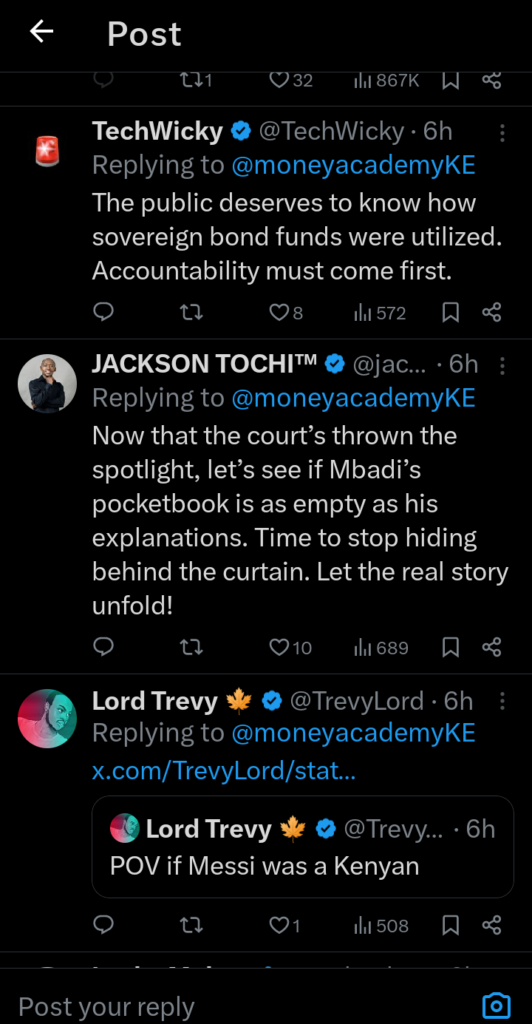The High Court’s directive requiring Treasury CS John Mbadi to disclose details of Kenya’s foreign debts and sovereign bond contracts within 45 days has cast a spotlight on the country’s opaque debt management practices.
Justice Mugambi also ordered Mbadi and the Attorney General to clarify how the sovereign bond funds have been utilized, an issue that has fueled public suspicion for years.

Kenya’s debt burden has been a growing concern, with external liabilities and bond contracts often shrouded in secrecy.
Former Treasury officials have been accused of signing agreements without adequate public scrutiny, leaving citizens in the dark about the terms and beneficiaries of these deals.
Mbadi, during his vetting, acknowledged that debt transparency has long been neglected, promising to prioritize public access to debt information.
He emphasized that such transparency is crucial for accountability, as taxpayers are ultimately responsible for repaying these obligations.
The lack of clarity on sovereign bond proceeds has raised questions about their alleged misuse.
Critics, including lawmakers, argue that the funds have not been channeled into visible development projects but instead have been lost to systemic inefficiencies or misappropriated.
For instance, previous reports revealed that some funds earmarked for infrastructure were diverted to recurrent expenditures, worsening Kenya’s fiscal position.
These allegations resonate with the frustrations of many Kenyans, who bear the brunt of higher taxes and a rising cost of living as the government struggles to service its debts.

Kenya’s fiscal policies have exacerbated the debt crisis.
With public expenditure at 22.1% of GDP and revenues stagnating at 16.5%, the resulting deficits have pushed the government to seek more borrowing.
Former Treasury CS Njuguna Ndung’u described the situation as “unsustainable,” warning that liquidity constraints have already delayed essential payments like salaries.
He stressed the need for strategic reforms to prevent a solvency crisis, urging a shift toward linking borrowed funds to specific, high-impact development projects.
The High Court’s intervention aligns with growing calls for transparency in financial management.
Mbadi’s task will be to confront systemic inefficiencies, such as favoritism in fund allocation and delayed county disbursements, which force counties to rely on costly commercial loans.
However, achieving these reforms will require more than rhetoric.
Structural overhauls of institutions like the Kenya Revenue Authority (KRA) and enhanced oversight mechanisms are essential to ensure borrowed funds serve public interests.
The 45-day ultimatum could mark a turning point in addressing Kenya’s debt woes.
Yet, whether this leads to meaningful change or becomes another hollow directive depends on the government’s commitment to accountability.
Public disclosure of foreign debt contracts and the utilization of sovereign bond funds is a critical first step toward rebuilding trust and ensuring that Kenya’s borrowing serves its citizens, not a select few.


